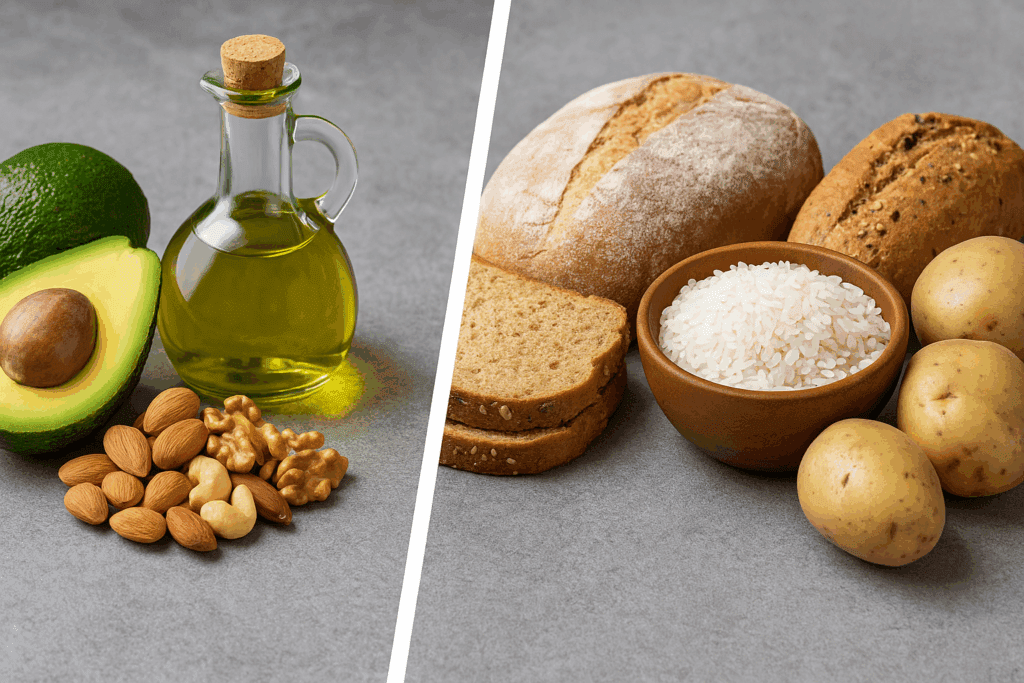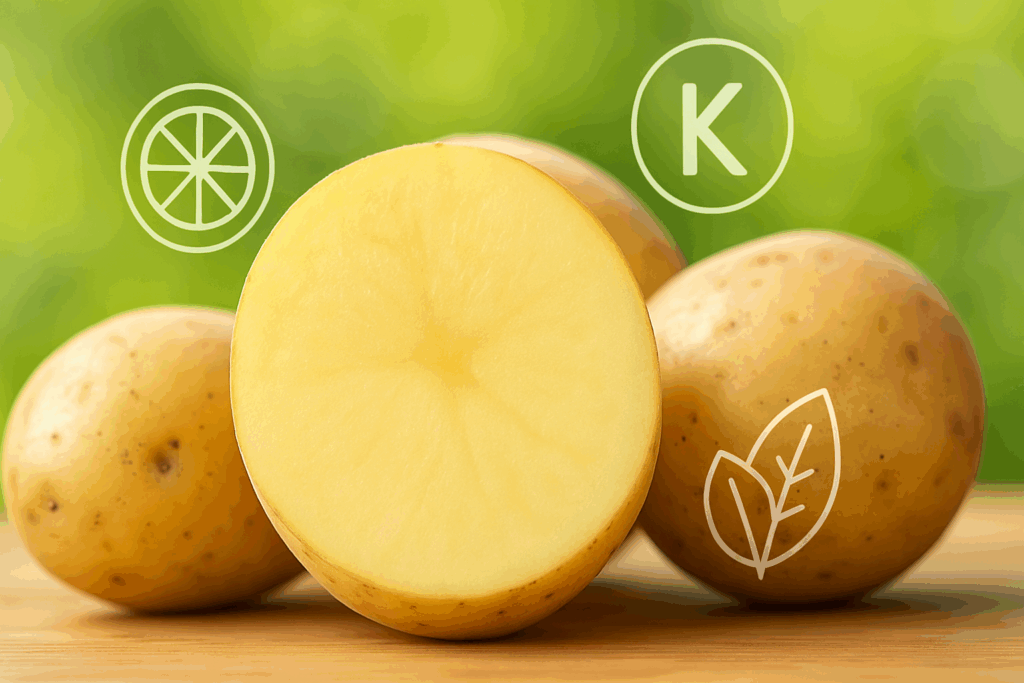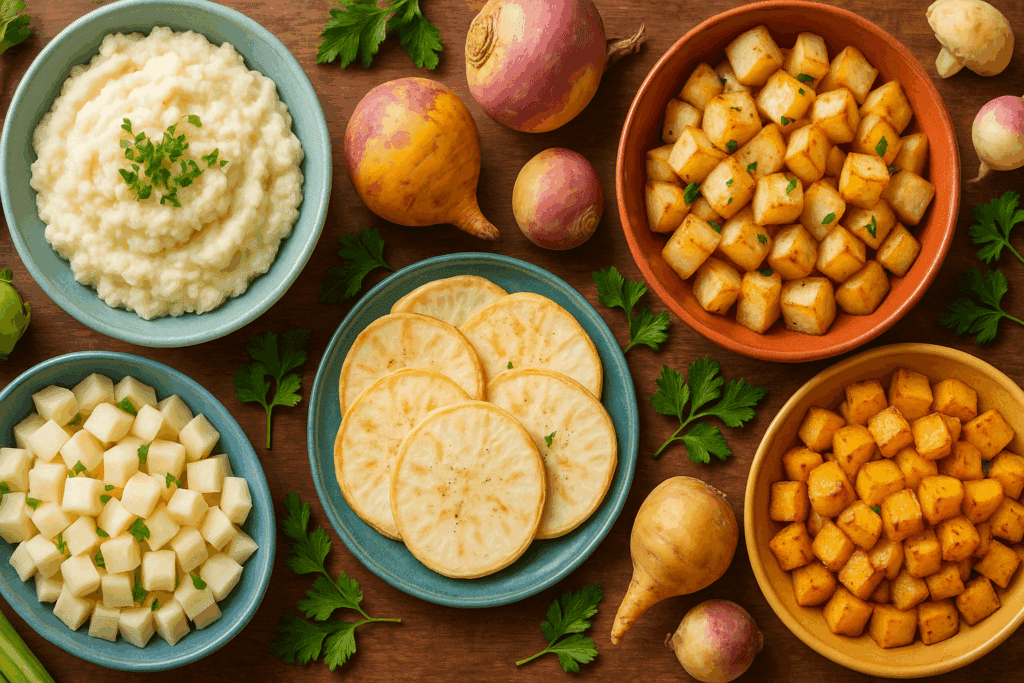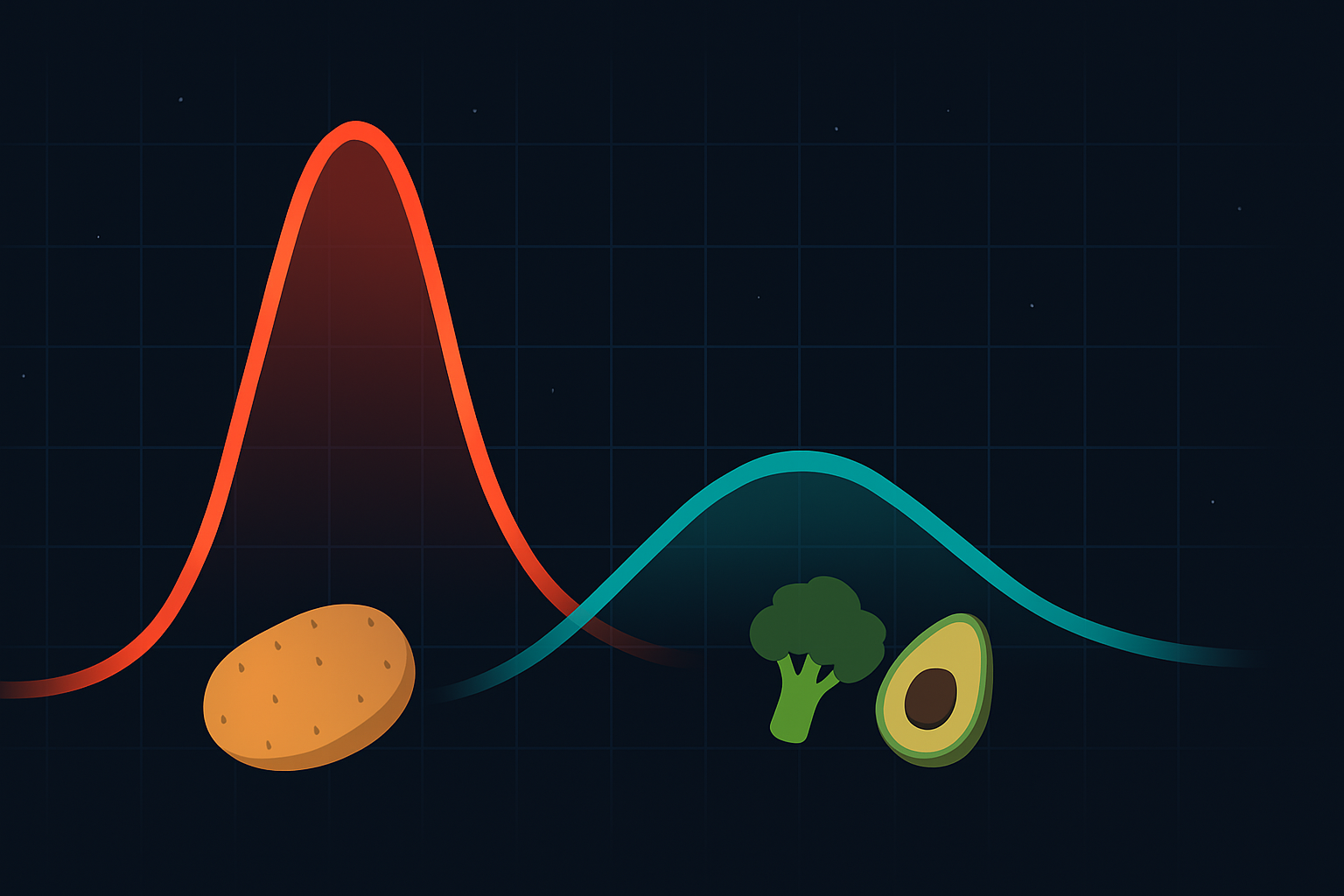For those exploring the ketogenic diet, a high-fat, low-carbohydrate approach to nutrition, one recurring question inevitably surfaces: can you eat potatoes on keto? Potatoes have long held a firm place in global cuisine, celebrated for their versatility, comfort factor, and nutritional density. Yet, as interest in the ketogenic lifestyle has grown, the role of starchy vegetables like potatoes has come under renewed scrutiny. Are potatoes keto friendly, or do they contradict the very principles of ketosis? To answer that, we must explore both the biochemistry of ketosis and the nutritional profile of potatoes—unpacking expert insights on how, if at all, they fit within a ketogenic framework.
You may also like: Is the Keto Diet Safe or Dangerous? What Experts Say About the Risks, Benefits, and Basics of the Ketogenic Diet

Understanding the Ketogenic Diet and Its Carbohydrate Limits
The foundation of the ketogenic diet lies in its capacity to shift the body from using glucose for energy to relying on ketone bodies derived from fat metabolism. Achieving this metabolic state—known as ketosis—typically requires keeping daily carbohydrate intake within a strict range, often between 20 to 50 grams of net carbs per day. This threshold ensures that blood glucose levels remain low enough to stimulate ketone production in the liver, sustaining energy demands through fat oxidation rather than sugar burning.
In this context, carbohydrate-dense foods such as bread, pasta, rice, and yes, potatoes, appear problematic. One medium-sized potato can contain anywhere from 30 to 40 grams of net carbohydrates—an amount that could consume nearly the entire daily carb allowance for someone following strict keto guidelines. This numerical reality forms the crux of the debate around keto and potatoes. The question is not merely one of inclusion, but of proportion and strategic planning. Can you eat potatoes on keto if your other meals are virtually carb-free? It depends, say nutrition experts, on how the rest of your dietary day is structured.

Nutritional Value of Potatoes: More Than Just Carbs
While potatoes are undoubtedly high in carbohydrates, they are not nutritionally void. On the contrary, they offer a rich array of essential vitamins and minerals including potassium, vitamin C, vitamin B6, and iron. They also provide dietary fiber, especially when consumed with the skin, and serve as a source of resistant starch—a form of carbohydrate that resists digestion in the small intestine and may have prebiotic effects in the gut.
However, these benefits must be weighed against the metabolic goals of those adhering to a ketogenic approach. The type and timing of carbohydrate intake play critical roles in maintaining ketosis. Eating a potato may provide certain micronutrients, but it could also trigger a spike in blood glucose and insulin levels—counterproductive to sustaining a state of ketosis. This is why many experts recommend other nutrient-dense, lower-carb vegetables such as leafy greens, zucchini, cauliflower, and broccoli as more suitable choices for keto adherence.

Are Potatoes Keto Friendly When Prepared Differently?
Not all potatoes, and not all methods of preparation, affect the body the same way. For instance, cooking and then cooling potatoes can increase their resistant starch content, lowering their glycemic impact. Some advocates of cyclical or targeted ketogenic diets—variations that allow higher carbohydrate intake around exercise or specific refeeding windows—argue that small portions of cooked-then-cooled potatoes may be tolerable without fully disrupting ketosis.
Still, the question remains: are potatoes keto friendly in the context of a standard ketogenic diet? For most individuals following a classic keto protocol, even a small serving of boiled or mashed potatoes may push them over the threshold of their daily carb limit. That said, experts emphasize the importance of personal metabolic flexibility. Some people may remain in ketosis even after a slightly higher carb meal, especially if they are active or have a well-adapted metabolism. In such cases, potatoes might be reintroduced periodically, though always with careful portion control and monitoring.

Alternatives to Potatoes on Keto That Satisfy the Same Cravings
One reason people ask whether potatoes are keto friendly is simple: they miss the taste, texture, and satiety that potatoes offer. Fortunately, the keto landscape has evolved to include a wide variety of potato alternatives that can help satisfy cravings without exceeding carb limits. Cauliflower, in particular, has become the darling of low-carb substitutions, appearing in everything from mashed mock potatoes to cauliflower-based tater tots and casseroles.
Other vegetables that mimic the mouthfeel or versatility of potatoes include turnips, rutabagas, celery root (celeriac), and kohlrabi. While these are not carb-free, they generally offer significantly lower net carb content per serving compared to white or sweet potatoes. These substitutes allow people to enjoy the psychological comfort and culinary familiarity of potato-like dishes while still aligning with their ketogenic goals.
Keto and Potatoes: What the Research and Experts Reveal
When it comes to aligning medical nutrition therapy with ketogenic principles, the inclusion of potatoes sparks consistent debate. According to leading dietitians and clinical researchers, the most important factor is metabolic context. Individuals using the keto diet therapeutically—for epilepsy, certain cancers, or metabolic disorders—are usually advised to avoid high-carb vegetables altogether, including potatoes. In contrast, those following keto for general wellness or weight management may experiment with reintroducing potatoes in very small quantities.
Registered dietitian nutritionists (RDNs) caution, however, that tracking blood glucose and ketone levels is essential when testing such reintroductions. The body’s response to carbohydrates is highly individualized. Tools such as continuous glucose monitors (CGMs) or at-home ketone testing strips can offer valuable insights into how one’s body reacts to specific foods like potatoes. If eating potatoes knocks a person out of ketosis for a prolonged period, it may not be worth the compromise, particularly for those with specific health goals.
Psychological and Cultural Considerations Around Potato Consumption
Beyond biochemistry, food choices are deeply tied to emotion, tradition, and social context. Potatoes are more than just a starch—they are cultural staples in many parts of the world. From Irish stews to Indian aloo curry and American mashed potatoes at Thanksgiving, the role of potatoes in meals extends far beyond nutritional content. For many individuals transitioning to keto, giving up potatoes may feel like sacrificing an important part of their identity or connection to family traditions.
This is where flexibility and personalization come into play. Some experts in nutritional psychology advocate for the occasional inclusion of meaningful foods—even if they slightly deviate from strict dietary guidelines—if it supports long-term sustainability. If having a small serving of potatoes during a holiday meal helps someone stay on track with their ketogenic diet the rest of the year, the emotional payoff may outweigh the metabolic cost, especially if the person is not using keto to manage a life-threatening condition.

Glycemic Index, Insulin Response, and Metabolic Health
Another layer to the question of can you eat potatoes on keto involves understanding the glycemic index (GI) and insulin response. Potatoes generally rank high on the glycemic index, meaning they cause a rapid rise in blood glucose. For keto followers, this is concerning not only because of the immediate impact on ketosis but also due to the broader implications for insulin sensitivity and metabolic health.
That said, there are nuances. For example, red potatoes have a slightly lower GI than russet potatoes, and sweet potatoes—though still starchy—have additional fiber and nutrients that may alter their impact. The way potatoes are cooked—baked versus boiled versus fried—also changes their glycemic load. Experts emphasize that GI values are only one piece of the puzzle. Total carbohydrate content, fiber levels, and the presence of fats and proteins in a meal also influence glucose and insulin responses. For someone carefully managing all these variables, a few bites of potato might be manageable in certain contexts.

Strategic Carb Cycling and Targeted Keto Approaches
Emerging trends in the keto community have introduced concepts such as carb cycling and targeted ketogenic diets (TKD), which offer more flexibility in carbohydrate intake. In a targeted keto approach, carbs are consumed before or after high-intensity workouts to enhance performance and recovery. In these cases, the body is more likely to use the ingested glucose quickly, thereby minimizing its disruption to ketosis.
This raises an important point: not all ketogenic diets are rigidly restrictive. If potatoes are consumed during a planned carb refeed or as part of a workout-enhanced meal, they might serve a strategic function. Experts recommend, however, that such variations be used judiciously and only after a solid foundation in standard keto practices has been established. Moreover, these approaches are better suited for individuals who are already metabolically flexible and experienced in navigating ketosis.
What About Sweet Potatoes and Other Varieties?
The popularity of sweet potatoes, often marketed as a healthier alternative to white potatoes, brings another layer of complexity. Sweet potatoes do offer more fiber and micronutrients, including beta-carotene, but they also contain a high amount of carbohydrates. The question of are potatoes keto friendly applies equally to sweet potatoes, with the answer largely depending on the serving size and the individual’s daily carb threshold.
Some keto enthusiasts find they can incorporate very small portions of sweet potatoes—perhaps a quarter cup mashed or roasted—without compromising their state of ketosis. Again, this is highly individualized and should be approached with caution. Purple sweet potatoes and Japanese varieties, which have slightly different nutrient profiles, are sometimes considered more favorable, but even these must be portion-controlled. Experts reiterate that it’s not about demonizing any food but about understanding how it fits—or doesn’t—within a given metabolic framework.
Long-Term Sustainability and Nutrient Adequacy
A common criticism of restrictive diets is that they may compromise nutrient adequacy over time. If you completely eliminate foods like potatoes, are you missing out on essential nutrients that support long-term health? Nutrition experts say that with careful planning, it is entirely possible to meet vitamin and mineral needs on a keto diet without potatoes. Leafy greens, avocados, nuts, seeds, and a variety of non-starchy vegetables can provide many of the same nutrients found in potatoes.
That said, there is also room for flexibility. A rigid, one-size-fits-all approach is rarely sustainable. For individuals who tolerate it metabolically, including potatoes occasionally may enhance dietary variety and enjoyment. The key lies in portion control, self-monitoring, and making informed choices based on individual health goals.
How to Reintroduce Potatoes Mindfully on a Keto Diet
If you are considering reintroducing potatoes into a ketogenic meal plan, it is essential to do so mindfully. Start with a small portion—perhaps half of a baby potato or a few slices of roasted sweet potato—and observe how your body responds. Track ketone levels, pay attention to satiety cues, and note any energy fluctuations. Including fat or protein in the meal may blunt the glycemic response, making the inclusion of potatoes slightly more keto compatible.
Experts recommend not making potatoes a daily staple but rather an occasional component of an otherwise strict keto framework. Timing also matters. Including small amounts of potatoes earlier in the day, or after physical activity, may reduce their impact on blood glucose levels. Ultimately, success lies in the details—meal composition, portion size, timing, and individual metabolic response all contribute to the outcome.
Frequently Asked Questions: Can You Eat Potatoes on Keto?
1. Is there a difference between white potatoes and sweet potatoes when following a keto diet? Yes, there are nutritional differences between white and sweet potatoes that can affect how they fit into a keto plan. Sweet potatoes generally contain more fiber and micronutrients like beta-carotene, but they are still relatively high in net carbohydrates. Although neither option is ideal for strict ketosis, sweet potatoes may offer a slightly better glycemic response due to their fiber content. However, when evaluating whether sweet potatoes are keto friendly, portion size and timing remain critical factors. While both white and sweet potatoes can disrupt ketosis, some individuals find that small servings of sweet potato fit more comfortably within a cyclical or targeted ketogenic approach.
2. Can resistance training help you tolerate more carbs like potatoes on a keto diet? Engaging in resistance training can increase your body’s glycogen storage capacity, which may create a temporary buffer for carbohydrate intake. For individuals practicing keto and potatoes consumption around their workouts, this can mean a higher chance of staying in ketosis. During and after exercise, the muscles are more insulin-sensitive, allowing for efficient glucose uptake and reduced blood sugar spikes. Therefore, can you eat potatoes on keto if you train hard? In some cases, yes—particularly when strategically timed post-workout and consumed in moderation, though this depends on the individual’s metabolic flexibility and total daily carb intake.
3. Are small amounts of potatoes better tolerated in long-term keto maintenance phases? Long-term keto practitioners often develop a greater awareness of their body’s carbohydrate threshold, which can make small dietary flexibilities more manageable. In maintenance phases, where the primary goal is no longer rapid fat loss but sustained metabolic health, some individuals cautiously experiment with reintroducing foods like potatoes. The question “are potatoes keto friendly” becomes less binary and more individualized at this stage. A few bites of roasted potato in a well-balanced, high-fat meal might not kick someone out of ketosis, particularly if they’ve been in a ketogenic state for an extended period. However, self-monitoring remains essential to assess the impact of reintroduction.
4. What cultural or psychological factors should be considered when eliminating potatoes on keto? Food is often deeply rooted in culture and tradition, and for many people, potatoes are tied to memories, holidays, and family meals. Removing potatoes entirely can create a psychological barrier to adherence, particularly if it feels like a deprivation of comfort foods or cultural identity. Rather than viewing keto and potatoes as mutually exclusive, some experts advocate for mindful inclusion on special occasions to support emotional sustainability. This approach can help prevent the all-or-nothing mindset that often leads to diet burnout. When asking “can you eat potatoes on keto,” it’s worth considering whether a flexible, long-term relationship with food is more important than short-term rigidity.
5. Can different potato varieties impact ketosis differently? Yes, the variety of potato can influence how it affects blood glucose and insulin levels. For example, red potatoes often have a lower glycemic index than russets, and purple potatoes contain higher levels of antioxidants and fiber. These differences do not make any variety strictly keto friendly, but they do offer options that may be more favorable in very small portions. In the context of keto and potatoes, choosing a lower-GI variety and pairing it with fat or protein may slightly mitigate its metabolic impact. However, all potato types remain carb-dense and must be consumed judiciously.
6. How do portion sizes of potatoes affect ketosis in keto-adapted individuals? Keto-adapted individuals often find that their tolerance for carbohydrates improves over time, but this doesn’t mean they can freely consume high-carb foods. Portion control remains vital when considering if potatoes are keto friendly in your particular diet. For some, a portion as small as two tablespoons of mashed potatoes may be enough to stay within carb limits, while others may find even that amount disruptive. Measuring and tracking carbohydrate intake from potatoes is essential to avoid unintentional exits from ketosis. Ultimately, a ketogenic diet is highly individualized, and portion awareness plays a central role in its success.
7. Are there any medical conditions that make eating potatoes on keto more risky? People using ketogenic diets for therapeutic reasons—such as epilepsy, insulin resistance, or certain types of cancer—are often advised to avoid starchy foods like potatoes completely. In these cases, the answer to “can you eat potatoes on keto” is a firm no, as even small deviations can undermine treatment goals. Potatoes’ high glycemic impact could interfere with insulin sensitivity or ketone production, which may be particularly problematic for individuals managing chronic conditions. It’s important for anyone using keto for medical purposes to consult with a healthcare provider or registered dietitian before making exceptions. The risks in these scenarios typically outweigh the benefits of flexibility.
8. Can cold or reheated potatoes be more keto friendly due to resistant starch? When potatoes are cooked and then cooled, they form resistant starch—a type of carbohydrate that resists digestion in the small intestine and acts more like fiber. This transformation can slightly reduce the glycemic impact, making cold or reheated potatoes marginally better from a ketogenic standpoint. Some keto enthusiasts explore this method when considering if potatoes are keto friendly under specific preparation techniques. However, the reduction in net carbs is modest, and the total carbohydrate load remains relatively high. While resistant starch may offer gut health benefits, it does not make potatoes a staple of ketogenic diets.
9. How does individual carb sensitivity influence whether potatoes can fit into keto? Everyone’s metabolic response to carbohydrates varies based on genetics, lifestyle, activity level, and insulin sensitivity. Someone with high insulin sensitivity may be able to incorporate small amounts of potatoes without being kicked out of ketosis, especially when timing and portion are optimized. In contrast, someone with insulin resistance may experience a sharper glucose spike, making it harder to re-enter ketosis after even minimal potato intake. Understanding how your body reacts through tools like continuous glucose monitoring can help clarify whether keto and potatoes are compatible for you. Personalized nutrition is key to long-term adherence and success.
10. Are there innovations in food science that could make potatoes more keto compatible in the future? As interest in keto-friendly alternatives grows, food scientists are exploring ways to modify traditional carbohydrate-rich foods to better align with low-carb diets. There is active research into altering the starch structure of root vegetables like potatoes to reduce digestibility and glycemic response. Additionally, food companies are developing hybrid products that combine potato flavor with low-carb binding agents to mimic the texture of traditional potato dishes. These innovations could shift the current answer to “are potatoes keto friendly” from a soft no to a conditional yes, depending on future advancements. Until then, traditional potatoes remain a gray area for keto followers who value metabolic consistency.
Conclusion: Are Potatoes Keto Friendly or a Dietary Detour?
So, can you eat potatoes on keto? The answer, nuanced and highly individual, lies somewhere between caution and possibility. While the carbohydrate content of potatoes makes them challenging to include in a strict ketogenic plan, they are not inherently incompatible with keto when consumed thoughtfully. Whether or not potatoes are keto friendly depends on the specific type of ketogenic diet you are following, your individual carb tolerance, your level of physical activity, and your overall health goals.
For many people, potatoes may remain off the table during the strictest phases of ketosis but could be reintroduced strategically in maintenance phases or modified keto plans. Rather than viewing potatoes as strictly forbidden, it may be more helpful to consider them as conditional foods—occasionally included based on context, need, and response. By aligning consumption with metabolic insight, psychological flexibility, and nutritional planning, it is possible to navigate the complex relationship between keto and potatoes without compromising the core benefits of a low-carb lifestyle.
Further Reading:
Keto Diet Food List: What to Eat and What to Limit If You Go Keto


